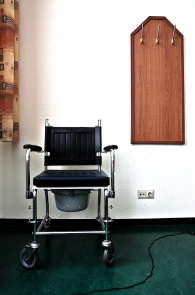If you or a loved one has been injured by a doctor or hospital, Call the Medical Malpractice Crisis Resource Line for Immediate Help >
Free Consultation. Call Now. (516) 394-4200
(516) 394-4200

Earlier last month, one of the largest nursing home operators in the country agreed to pay out over $38 million to several state governments, as well as the federal government, over a series of claims that alleged the nursing home fraudulently billed to governments and provided inadequate care to residents. According to a report by the New York Times, the Justice Department brought the suit against Extendicare in what has become the largest suit brought by the Department to date.
Evidently, Extendicare operates approximately 150 homes in 11 states. Of those 150 homes, 33 were allegedly not staffed with the appropriate number of nurses to care for the number of residents who were housed at the facility. In addition, the suit claimed that Extendicare was fraudulently billing Medicare for services that were not performed.
Of the $38 million settlement, $10 million was designated for false billing and the remainder for poor care. The care was so inadequate that, in some cases, patients became so dehydrated and malnourished that they developed infections, leading to otherwise unnecessary hospitalizations.
The Standard of Nursing Home Care
Nursing homes do not enjoy a good reputation among the public at large when it comes to the quality of care they provide their residents. Often, this is for good reason. We see hundreds of cases each year where an elderly resident has his or her life cut short because he or she was placed in an abusive or negligent care environment.
The reality is that all nursing homes have an affirmative duty to provide quality care to their residents. This duty requires more than keeping residents free from abuse. In fact, nursing home negligence is something that is taken very seriously by New York judges and juries, resulting in a recent spike in settlements and jury verdicts.
Proving a case against a nursing home can be tricky, however. While the law protects nursing home residents, it also requires a fairly high burden of proof before a nursing home can be held liable for injuries or a death that occurred on its premises. Often, a plaintiff must provide some kind of affirmative evidence of abuse or neglect before he or she will be permitted to recover for any injuries or losses.
Have You Been Injured in a New York Nursing Home?
If you have a loved one who is in a New York nursing home and you believe that he or she is not being treated properly, it may be that your loved one is experiencing nursing home abuse or neglect. If so, he or she may be entitled to monetary compensation for his or her injuries. If the nursing home’s conduct resulted in the death of your loved one, you may be able to bring a wrongful death action against the nursing home, seeking compensation for your loss. To learn more, contact one of the dedicated attorneys at Duffy & Duffy, PLLC today at (516) 394-4200 to set up a free initial consultation.
See Other Blog Posts:
New York Nursing Home Successfully Sued for $2 Million After Negligent Care Led to Stage-IV Bedsore, Long Island Injury Lawyers Blog, September 29, 2014.
“Special Knowledge” Jury Instruction Required Reversal of Verdict in Plaintiff’s Favor, Long Island Injury Lawyers Blog, September 29, 2014.
No. Our injury cases are handled on a contingent retainer. You pay nothing upfront, and we recover attorney’s fees only if your litigation is successful. We don’t bill by the hour. You don’t need to worry about running up a large attorney’s bill before you see any recovery for your injuries.
Yes. Our firm is dedicated to creating a strong relationship with our clients, beginning with keeping your information and consultation confidential.
Each case we encounter is carefully screened and evidence scrutinized to make sure the claim is meritorious and may be successful at trial. We will perform an investigation, and then our partners make a final decision on whether to take on a case.